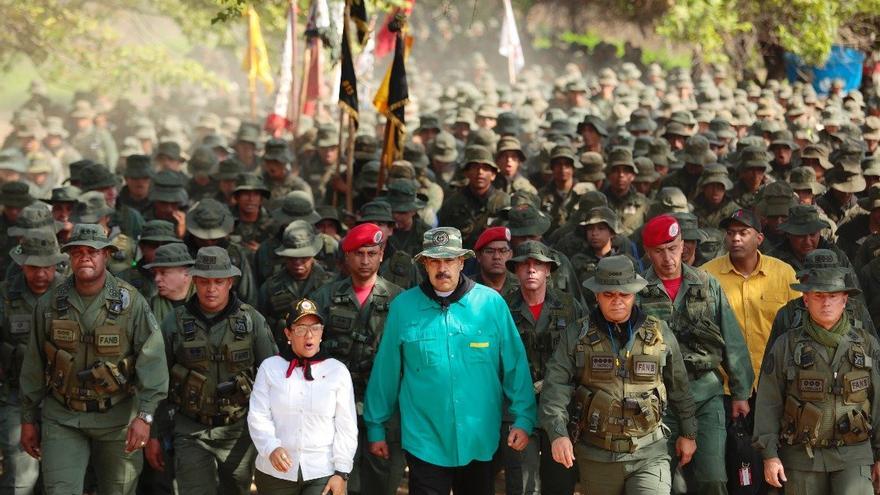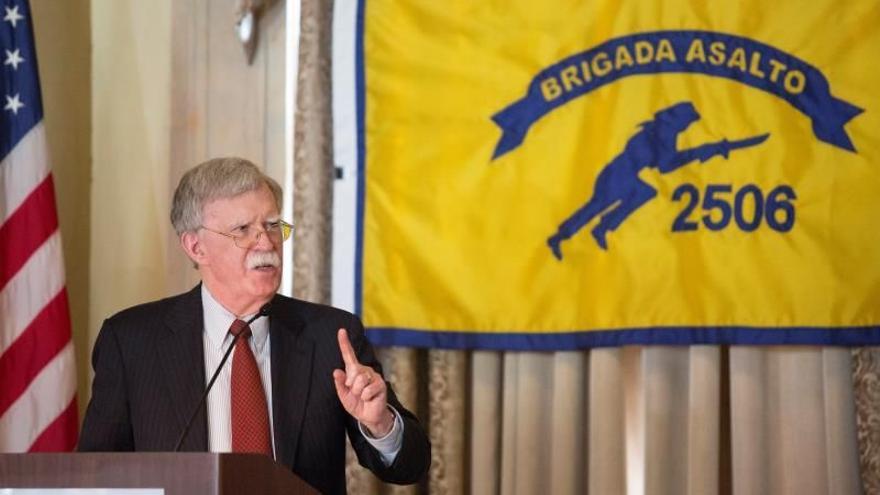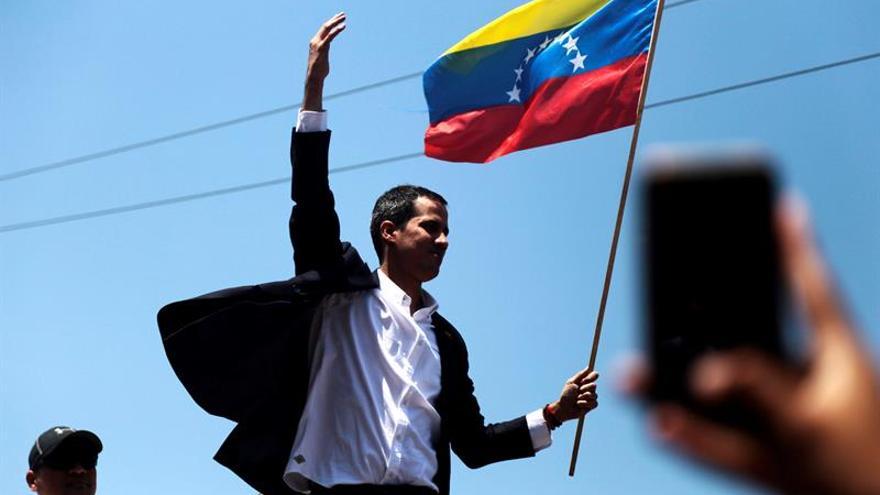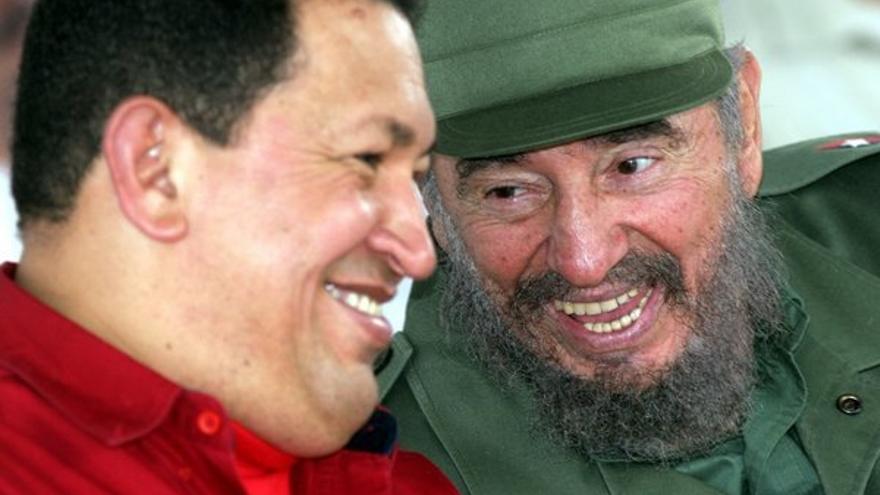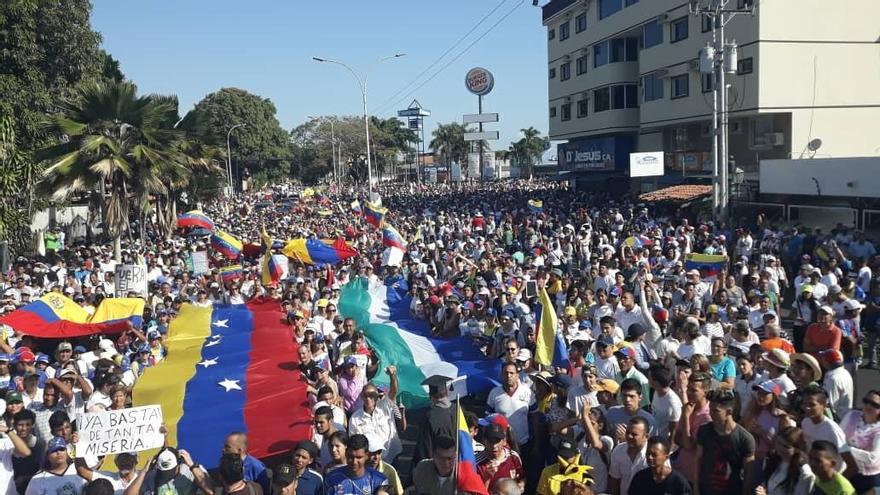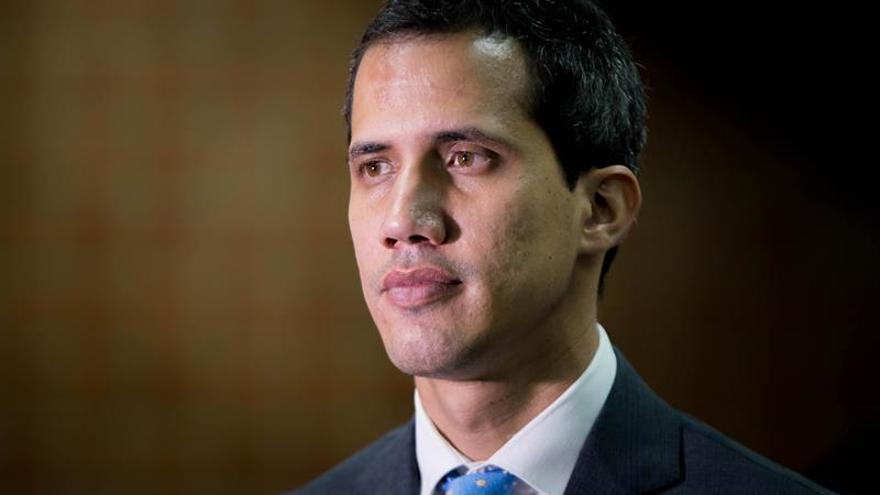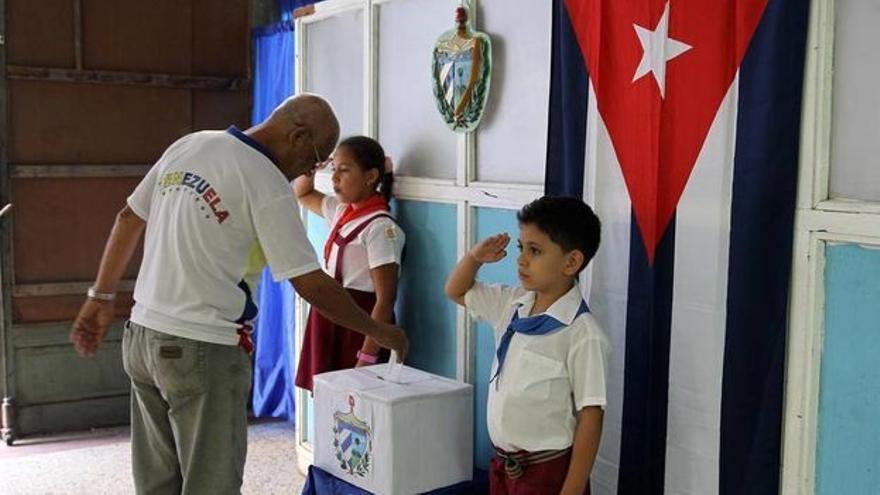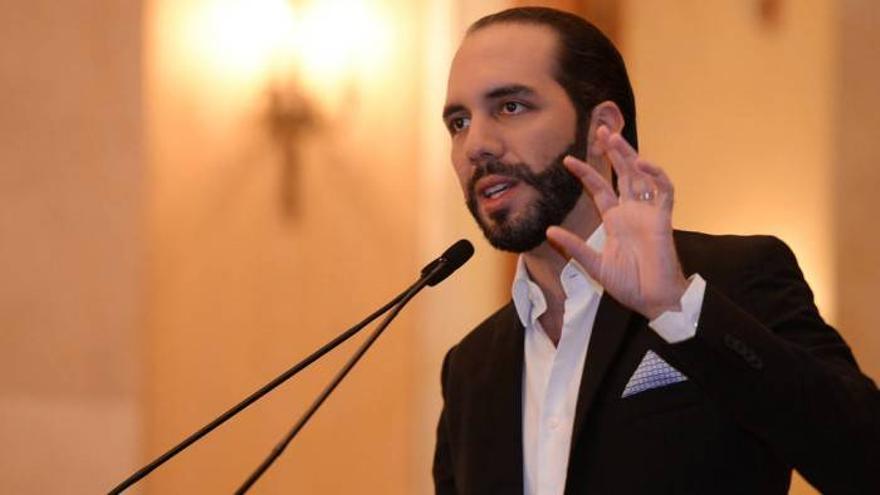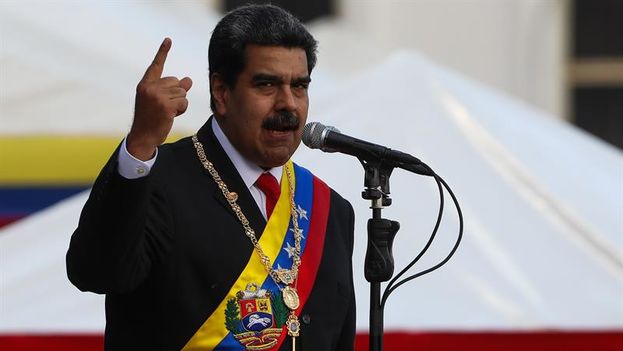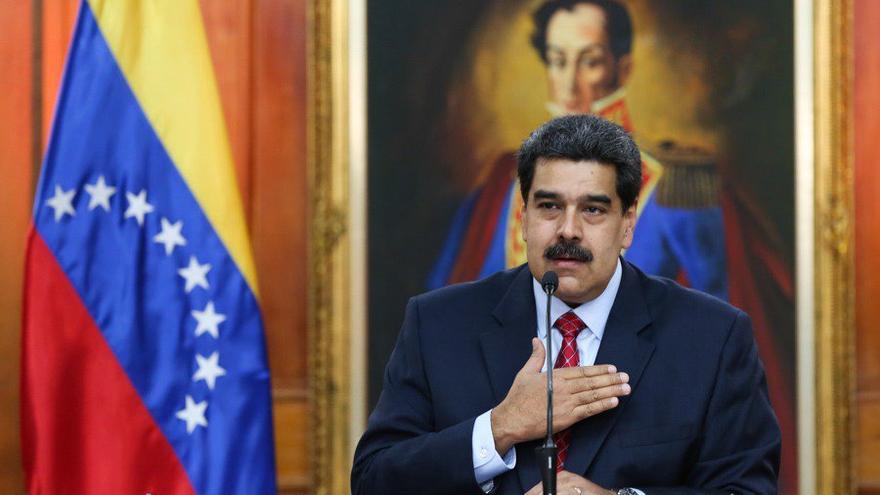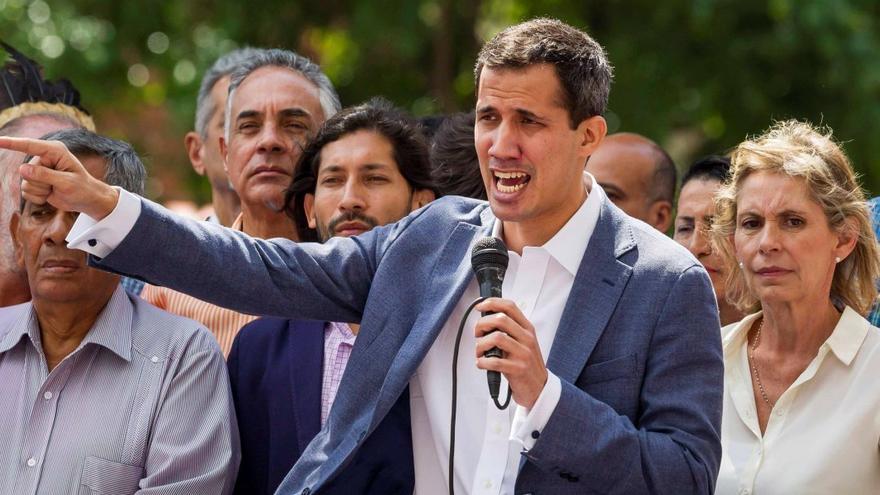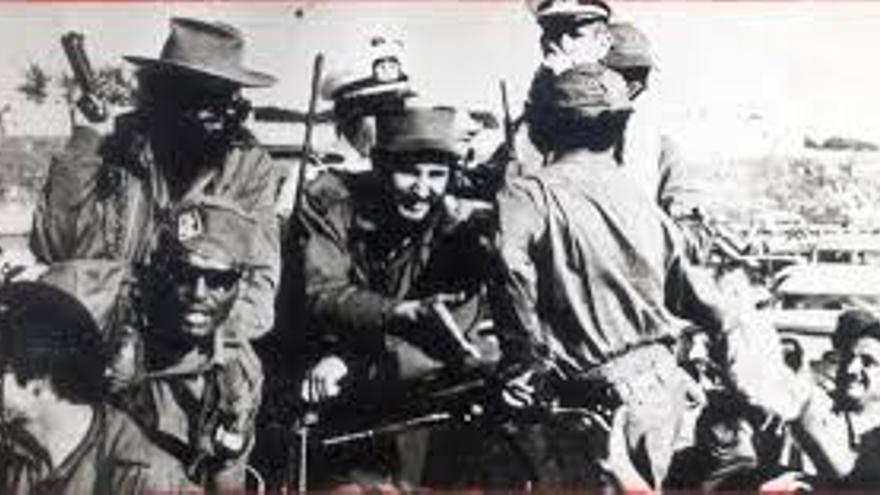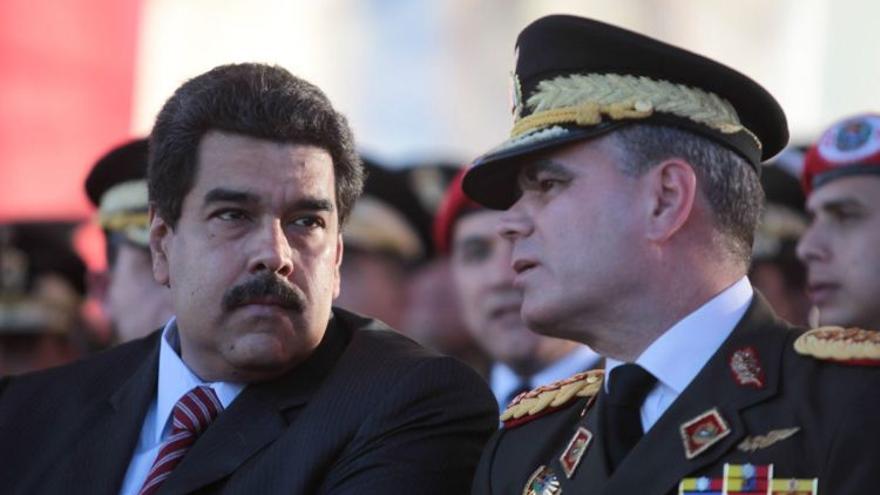
![]() 14ymedio, Carlos Albert Montaner, Miami, May 12, 2019 — They are about to put Juan Guaidó in prison. Nicolás Maduro and the Cuban services are weighing it. The detention of Edgar Zambrano, First Vice President of the National Assembly, is a dress rehearsal for the arrest of President Guaidó. They are feeling out the terrain. Maduro and Raúl Castro have come to the conclusion that it is not possible to control power with another source of authority loose in Venezuela. I don’t mention the Cuban “president” Miguel Díaz-Canel because he is an errand boy.
14ymedio, Carlos Albert Montaner, Miami, May 12, 2019 — They are about to put Juan Guaidó in prison. Nicolás Maduro and the Cuban services are weighing it. The detention of Edgar Zambrano, First Vice President of the National Assembly, is a dress rehearsal for the arrest of President Guaidó. They are feeling out the terrain. Maduro and Raúl Castro have come to the conclusion that it is not possible to control power with another source of authority loose in Venezuela. I don’t mention the Cuban “president” Miguel Díaz-Canel because he is an errand boy.
They intend to totally destroy the National Assembly, accusing it of “treason against its country.” For Maduro and his supporters, it doesn’t matter that nobody believes it. The game entails working out parallel alibis to “explain” the disaster. There is hyperinflation because of Venezuela Today, a web page managed by “enemies of the country.” There are shortages of food and medicine due to the embargo by the Americans. There are electricity cuts and lack of potable water because John Bolton decided it and personally directed the havoc. Venezuelans escape from the paradise confused by the siren song of the capitalist adversaries. Truth doesn’t matter. Only the story. continue reading
The Cuban regime is desperate, but devises its strategy to stay afloat. Raúl fears street riots stemming from the shortages. He needs the Venezuelan subsidy like Dracula needed the dose of blood from his victims. The intelligence “apparatus” of Havana believes, at this point, that Donald Trump is all bark and no bite. For that reason they treat him with kid gloves and save the bigger guns for Marco Rubio, Mike Pompeo, John Bolton, and Elliot Abrams. The hard core that backs Guaidó. Those are the enemies that must be hobbled. They are the “biters,” although they lack strength to use the weight of American arms.
The conclusion that Cuban intelligence has reached regarding Trump has a certain logic. If he wants to withdraw from the Middle East, what sense would it have for him to put troops in Venezuela? If he is capable of weakening NATO or the European Union, because he is persuaded that his country pays the lion’s share and doesn’t benefit from it at all, why in Latin America would he play the role of “leader of the free world” when the main people affected are Latin Americans themselves? If the chubby guy from North Korea is sometimes rocket man and other times is a trustworthy guy, why fear the tenant of the White House? They already know that they are facing a salesman who says anything, and threatens and makes a fuss, but doesn’t resort to the stick.
However, Nicolás Maduro smells of the past. That Cuba understands. He was smuggled into power. At the beginning of 2013, when Hugo Chávez died, the Cuban regime chose him not for his virtues, but rather for his weaknesses. It was Diosdado Cabello’s “turn,” but he was a rogue who was too independent and didn’t follow anyone’s orders. Maduro, on the other hand, was obedient and would keep in force the only thing that interested Havana: the supply of oil and the crooked money that the nomenclature of both dictatorships gave out, like that glorious “business” through which a Cuban “company” rented for a million dollars a day to PDVSA a platform to extract petroleum from the Maracaibo lake. The real bill was half a million all of God’s days, but upon being triangulated from Havana the costs magically doubled.
Maduro has to get out of the game to save Cuban interests. Maduro agrees. Everyone knows by now that Cuba’s new man is General Vladimir Padrino López, head of the Armed Forces, and the person who foiled the coup of April 30 and deceived the enemy intelligence services. But how to make the switch? One possibility is to convince the Lima Group, the United States, and the opposition itself of the necessity of solving the crisis via the “Nicaraguan model.”
What is that? In 1990 the Sandinista dictatorship submitted to elections thinking that they would win them, like all the polls were showing, even those ordered by Washington. But the unthinkable happened: Violeta Chamorro won by an enormous margin, as D. Oscar Arias had predicted to me after seeing the poll by Borge and Associates, a modest Costa Rican company that got it completely right.
At that point, the Sandinistas had against them the majority of the population and the United States, but they still had the military apparatus, so they made an unseemly proposal that everyone ended up accepting to get out of that wasps’ nest. The Sandinistas would admit defeat at the ballots in exchange for remaining at the head of the Armed Forces without the new government being able to control them. In the period prior to the taking of possession they would eliminate the worse adversaries. It was then that they assassinated dozens of “Contra” chiefs.
Havana thinks that the exit of Maduro can happen in the same manner with a variation: impeccable elections in which Chavismo would certainly be defeated, but Padrino López would remain at the head of the armed forces and the agreement of oil for doctors, vital for Cuba, would be respected, and a return to the sweet climate between the two countries of the Obama era, at the risk of unleashing on the United States another Camarioca, another Mariel, another “raft crisis,” given that the Island has more than enough prospective emigrants anxious to get to the United States and the economic crisis worsens with each turn of the screw of the Helms-Burton law.
Hopefully that does not happen and the Venezuelan democrats do not allow it. It’s bread for today and hunger for tomorrow. Thirty years after the 1990 elections Daniel Ortega and the Sandinista movement continue to loom over Nicaragua, while the 21st Century Socialism remains in that country, in Venezuela, and in Bolivia orchestrated by Havana. Padrino is not only the head of the Armed Forces, like the general Humberto Ortega was in Nicaragua. He is the protector of a narco-state allied with the terrorists of the Middle East. The problem is not solved with stopgaps, but rather with drastic measures. It’s time for the “iron surgeons,” not “bandaids.”
Translated by: Sheilagh Herrera
__________________
The 14ymedio team is committed to serious journalism that reflects the reality of deep Cuba. Thank you for joining us on this long road. We invite you to continue supporting us, but this time by becoming a member of 14ymedio. Together we can continue to transform journalism in Cuba.

